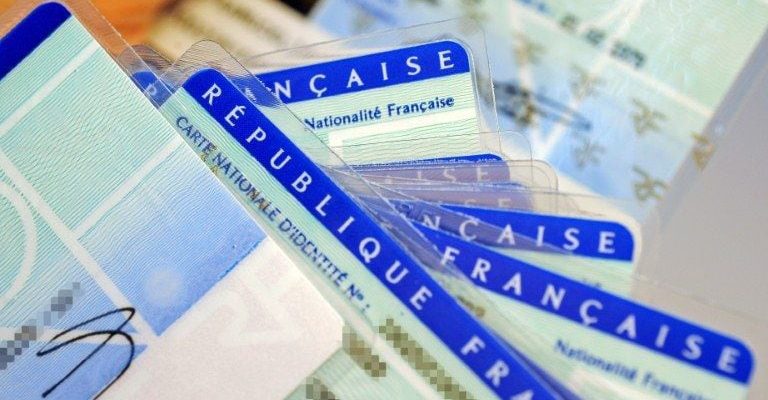Have you ever heard of the “reintegration” procedure? This method of acquiring French nationality which dates from 1804 has recently been the subject ofa new study from the National Institute of Demographic Studies (INED). Because although in the minority alongside “naturalization” or “declaration” (intended for minors born in France to foreign parents, or foreigners married to a French person), reintegration has been at the origin of more than 200 000 acquisitions of nationality since the 1960s.
This procedure, which until now was “discreet” and “little known”, allows individuals who have lost their nationality to become French again. Unsurprisingly, nationals of former colonies are the most numerous to have opted for the reintegration procedure. “Arrivals in France depend a lot on family trajectories linked in part to the colonial past,” recalls Emmanuel Blanchard, associate researcher at INED and co-author of the study, to AFP.
Thus, of some 2,350 reintegrated in 1981, nearly 1,700 are Algerians and 538 are Vietnamese. “At the time of decolonization, the former natives were almost all of French nationality,” explain the researchers. But the independence of the former colonies, which arrived like a dog in a bowling game, disrupted their administrative status.
Decolonization, a favorable context
This is how, after the wave of independence that occurred at the end of the 1950s and the beginning of the 1960s, requests for reintegration exploded. Researchers have in fact noted “the importance assumed by reintegration” from the 1970s. In 1975, a breakthrough took place: the threshold of 1,000 reintegrated per year was crossed, and will remain like this until the start of the 21st century. Over the period extending from 1980 to 2010, INED estimates that reintegration concerns 4 to 7% of acquisitions of nationality.
And for good reason, following decolonization, many changes of nationality were not instantaneous or definitive. When Algeria gained independence in 1962, for example, only some 60,000 “natives” chose to retain their French nationality. Those who did not take the step were automatically forfeited retroactively from 1967.
This is why recourse to the reintegration procedure increased at the end of the 1960s. This allows any Algerian born before independence and who emigrated to France to recover their French nationality. “In the context of the time, for the vast majority of Algerians there was no doubt that the nationality they wanted to have was French nationality,” report the researchers.
After the golden age, a clear decline since 2010
Until the beginning of the 21st century, the reintegration procedure confirmed its speed, reaching its peak in 2005. That year, more than 10,000 people regained French nationality through reintegration. An acceleration largely linked to “the massive increase in applications filed by Algerians at the height of the black decade”, according to the formula devoted to the Algerian civil war of the 90s.
But according to INED, 2005 marks “the last lights of a golden age of reintegration, both brief and limited”. Because since then, the number of people reintegrated has continued to decrease. And for good reason, the population born before decolonization is dwindling as time goes by. Inevitably leading to a shrinking of the population eligible for reintegration. Thus, in twenty years, the annual number of reintegrated people has been divided by ten. As an illustration, fewer than 800 people in total regained their French nationality through reintegration in 2020.
In addition, researchers have observed a surge in reintegration procedures among people from former overseas territories (TOM) at the dawn of the 21st century. An increase which is largely explained by the reform of the Nationality Code in 1993, carried out in a context of strong tensions around “French people in spite of themselves” or “French people on paper”. And which deprived TOM nationals of other procedures for acquiring nationality.
